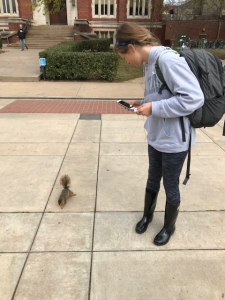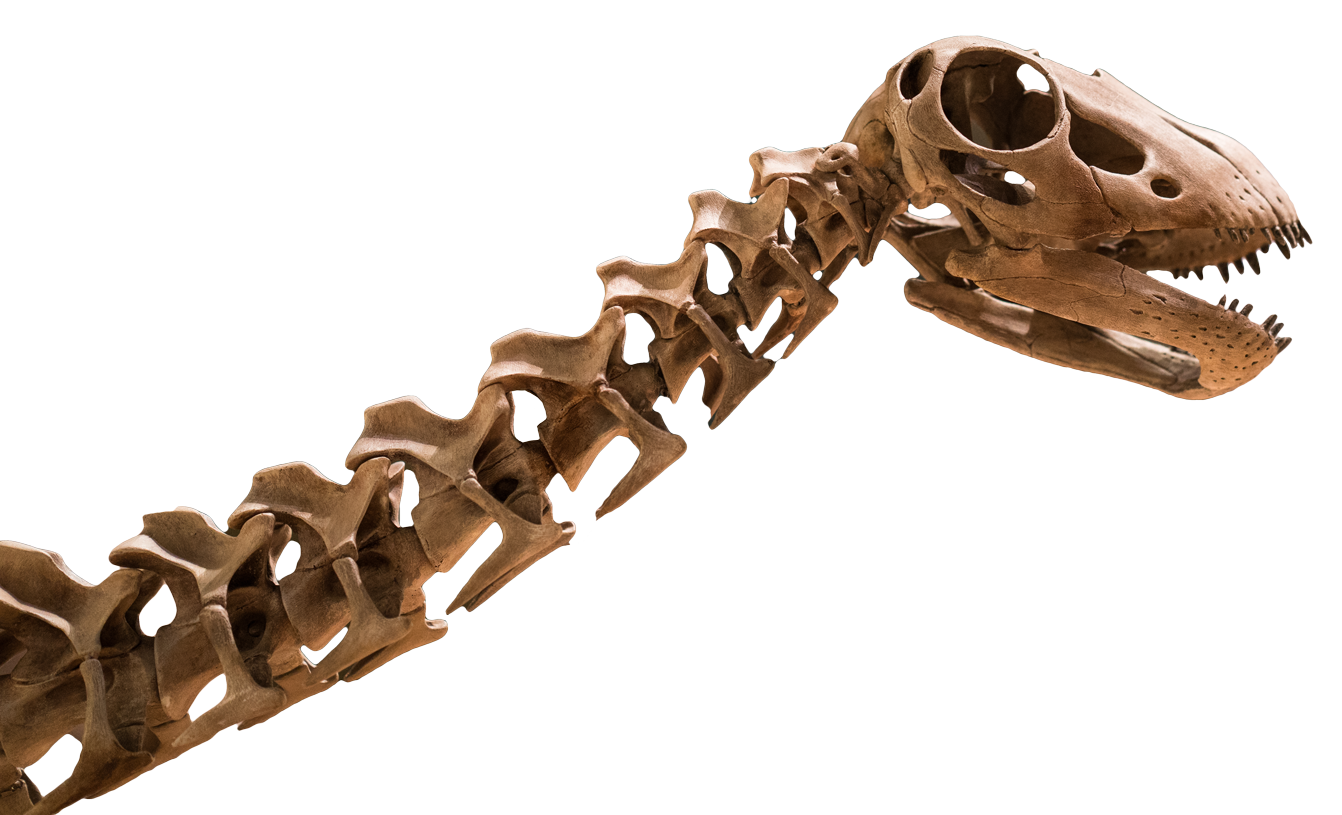Four different agencies have awarded over $597,000 in grants to the Sam Noble Museum.
Both the Department of Ichthyology and the Department of Mammalogy received substantial grants from the National Science Foundation, while the Department of Native American Languages received grants from the Institute of Museum and Library Services, the National Endowment for the Humanities and the OU Junior Faculty Fellowship. The Department of Mammalogy also received a grant from the OU Junior Faculty Fellowship.
Dahiana Arcila, assistant curator of ichthyology and assistant professor of biology, received a $300,050 grant from the NSF for her project, Exploring the Genomics of Convergent Snout Elongations in Deep-sea Fishes. Her project will investigate convergent evolution, which is the process where non-related organisms develop similar features to adapt to similar environments.
“Among vertebrates, fishes are one of the few groups that provide repeated cases of adaptation to deep-sea marine environments, which are some of the most extreme and underexplored environments on Earth,” said Arcila. “Colonization from shallow to deep-sea habitats have occurred multiples times resulting in a variety of remarkable adaptations, from the presence of bioluminescence and small body size to a diverse array of morphological specializations.”
Her research will focus on living deep-sea spikefishes. These fishes are distributed around the tropical and temperate upper slopes of the world’s oceans, and the fossil record provides well-preserved extinct species from the Eocene and Oligocene periods.
“Lineages in this group have independently evolved at least twice and have some of the smallest vertebrate genomes,” said Arcila. “They provide an outstanding system for investigating convergent evolution.”

Hayley Lanier, assistant curator of mammalogy and assistant professor of biology, also received a grant from the NSF totaling $160,524 for a project titled, Squirreling Around for Science: Incorporating Sciurid Behavioral Research into the Undergraduate Curriculum. This project focuses on providing students with opportunities to engage in field-based biodiversity science during their undergraduate careers.
“My collaborators across a network of nine institutions and I have developed a series of course-based undergraduate research experiences focused on squirrels,” said Lanier. “Undergraduate research opportunities are important for students to build their scientific understanding, but their availability is often limited. By incorporating research directly into classes, these experiences can help bridge this gap, providing opportunities to a greater and wider range of students.”
As part of this project, students will develop their own research questions and collect data on the ecology and habitat use of squirrels.
“Because squirrels are abundant and easily visible across a wide range of habitats, they are an accessible way for students to apply theories, develop questions and test their own hypotheses,” said Lanier. “Students will also contribute their data to a nationwide network, joining students at other universities and colleges in sharing research results and building a comparative database on a range of squirrel species and locations.”
Lanier also received a grant for $7,000 from the OU Junior Faculty Fellowship for her research on pikas titled, Linking Dispersal and Population Viability Across Scales in the Collared Pika. This project looks at how individual movements connect populations together across the landscape.
“This work is important for helping us to predict which populations of this alpine species may isolated, and at greater risk of going locally extinct,” said Lanier. “Pikas are thought to be very sensitive to increases and temperature, so identifying populations in peril is a critical need.”
Raina Heaton, assistant curator of Native American languages and assistant professor of Native American studies, received a $73,822 grant from the Institute of Museum and Library Sciences for her project, The Native American Languages Collection: Infrastructure and Stewardship. This grant will fund upgrades to the collection’s digital storage and backup systems, improving the ability to serve the public and also prevent against catastrophic loss of collection materials.
“Once the new system is in place, Native American languages staff will have easy, unified access to all digital collection materials in the same place, which will decrease turn-around time in providing access to collection materials for our visitors,” said Heaton. “This infrastructure also constitutes an important step in our ability to make our collections available online.”
In addition, Heaton received a $49,495 grant from the National Endowment for the Humanities for her project, Collaboration and Development for Digital Access to the Native American Languages Collection. The grant will fund a series of workshops with stakeholders to plan the development of an online platform for the collection.
“The platform will provide unprecedented access to the collection by allowing users to view and download materials directly, rather than the current system which requires people to visit the collection in person,” said Heaton. “This type of access is increasingly becoming the expectation for archives and fulfills our mission to make those materials, that are meant to be shared, as available as possible to Native peoples, researchers and the greater public.”
Heaton also received a grant for $7,000 from the OU Junior Faculty Fellowship for her project, Towards an Enenlhet Grammar and Dictionary. This project constitutes the second phase of the Enenlhet documentation project, which aims to create comprehensive resources for the Enenlhet language in Paraguay.
“In the long term, this project will lead to the publication of a grammar and dictionary, and also support the documentation of local stories, ways of life and culture,” said Heaton. “Projects like this which document endangered languages and provide support for language revitalization are critical, time-sensitive endeavors that are necessary if we are to reverse global trends in language endangerment.”
Previously, Heaton documented hundreds of hours of the Enenlhet language on a two-month trip to Paraguay. Over 120 hours are accessible online via the Archive of the Indigenous Languages of Latin America.
All of the grants will help these curators further the mission of the Sam Noble Museum, which is to inspire minds to understand the world through collection-based research, interpretation and education.


